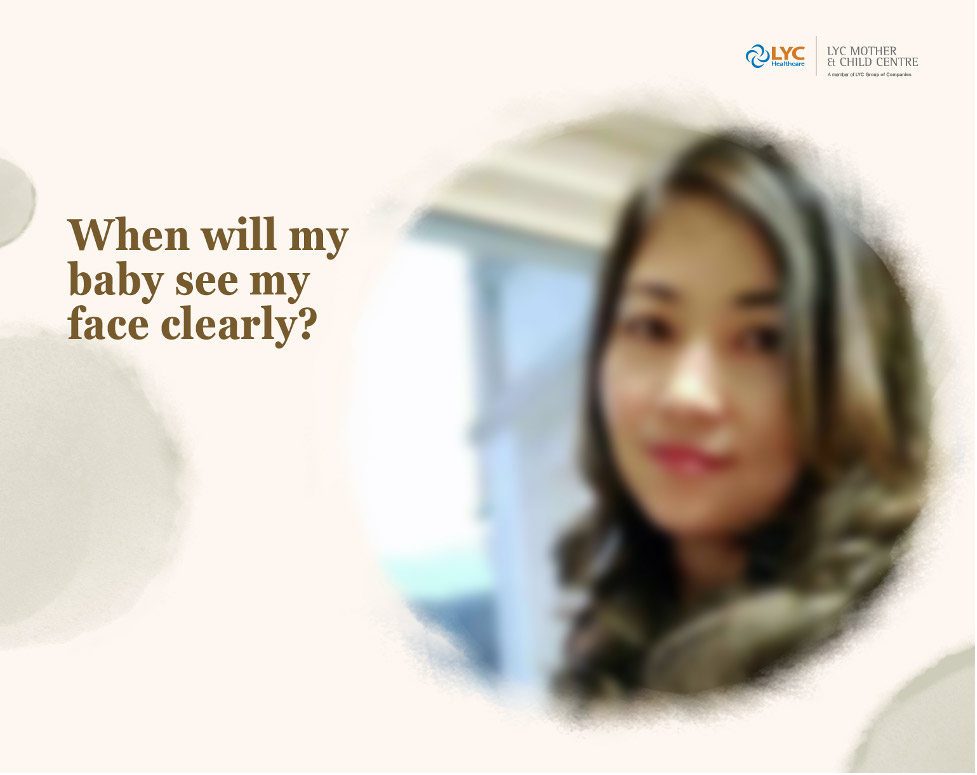
A newborn baby's vision is usually limited at birth but gradually develops and improves over time. Here is some important information about your newborn baby's vision:
Most of the time, newborn babies' vision is blurred. Their ability to perceive distance and details is very limited. They may see the outline of objects and some basic contrast, but they cannot see details clearly.
Newborn babies can mainly distinguish black and white colours in the first few weeks. Colour vision will develop gradually.
Newborn babies are sensitive to light and may squint their eyes or avoid bright light. Their pupils will contract or expand according to the intensity of light to help regulate how much light enters their eyes.
Over time, usually within the first few months of life, a newborn baby's vision gradually improves and he begins to see objects and faces around him more clearly.
Newborn babies often do not have fully coordinated eye movements at birth and will gradually learn to fixate and track objects over the next few months.
Providing appropriate visual stimulation is important for your newborn's visual development, including interacting with them, showing them contrasting images or colours, and making sure they give their eyes enough rest without overstimulating them.
As for how a baby's vision develops over time, it can be briefly categorised as follows:
During the first 2 months of life, your baby's eyes may look similar to those of an adult, but their vision is not yet fully developed. At birth, they can perceive light and some simple patterns, but any object farther than 20 centimetres from the eye will appear blurry.
Therefore, when you hold your baby, it is very important to keep your face no more than 20 cm away from your baby's eyes, so your baby can recognise your face.
Around 14 weeks, babies will have better depth perception and begin to notice the structure and depth of objects. As the memory function also begins to develop, your baby is more likely to be attracted to new objects, fixate on objects and try to reach out to touch or grab them.
Newborn babies are unable to fixate their eyes on an object; this ability does not develop until around 6 months of age. At 5 to 6 months old, they can see small objects like buttons.
By 7 or 8 months, babies not only recognise people through touch, but also recognise people and objects through vision as well. By 9 or 10 months, they will be able to grasp small objects with their hands.
At 11 to 12 months, babies can track moving objects and people. Between 13 and 16 months, your baby may point to pictures in a book and try to describe what he sees. Under normal circumstances, babies will only be able to draw or doodle when they are about 2 years old.